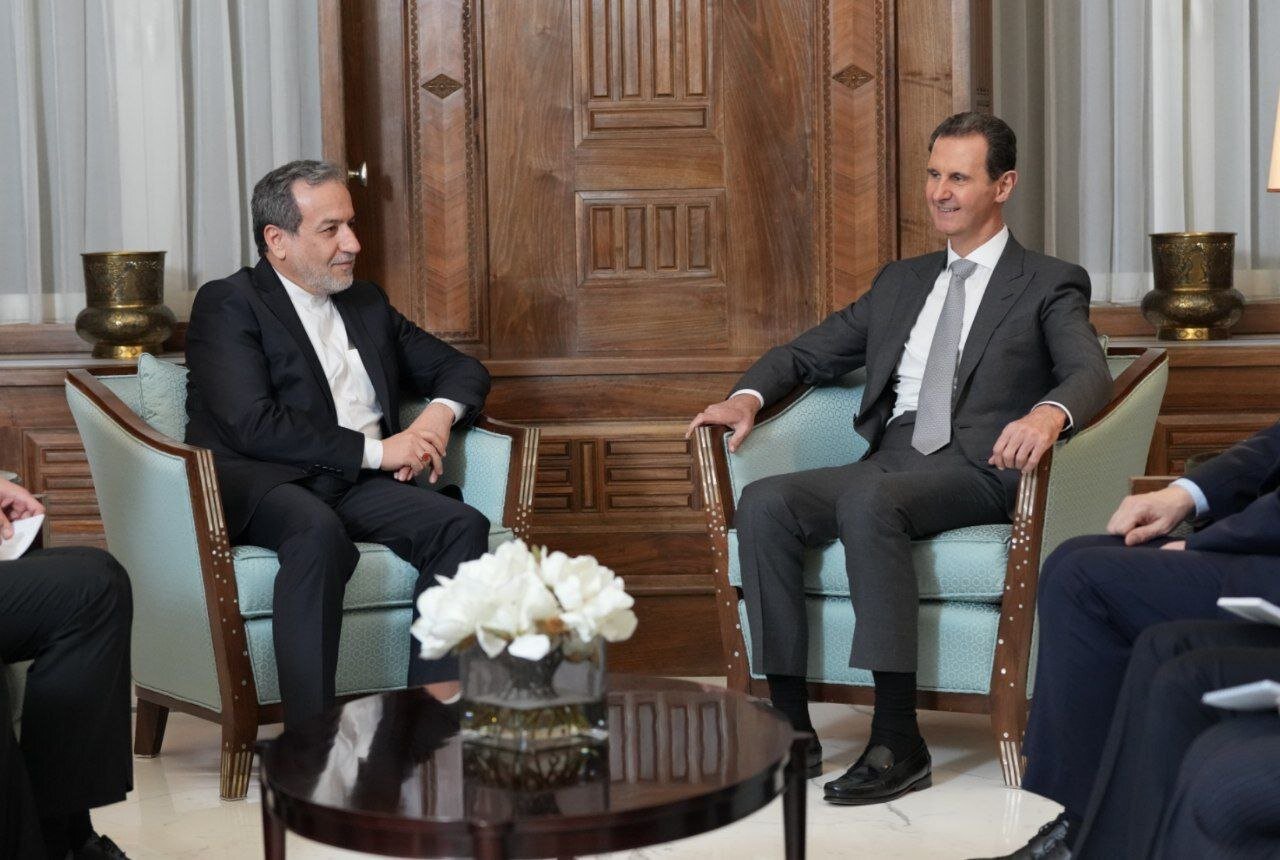Ironclad backing
In Damascus, Araghchi links US and Israeli goals to terrorism in Syria

TEHRAN – Iranian Foreign Minister Abbas Araghchi arrived at Damascus International Airport on Sunday as Syria battles a resurgence of terrorism in its north.
The minister quickly proceeded to the presidential palace for talks with President Bashar al-Assad. Photos from the meeting depict a relaxed Assad, a demeanor perhaps born from years of experience battling terrorism and defending Syria against foreign-backed attacks that began in 2011.
Araghchi reaffirmed Iran's steadfast support for the Syrian government, army, and people, a commitment that dates back to 2011 and significantly contributed to the defeat of Daesh terrorists by the autumn of 2017.
"The sinister goals of these terrorists align with those of our enemies in perpetuating war and insecurity," the Iranian chief diplomat stated, expressing confidence that Syria would once again prevail against these threats, just as it has done in the past.
In response, President al-Assad expressed gratitude for Iran’s steadfast support, acknowledging the Iranian government and people's role in bolstering Syria's resilience against terrorism.
What’s exactly happening in Syria?
The Hayat Tahrir al-Sham (HTS) terrorists and their allied factions launched major surprise attacks into Aleppo province soon after a ceasefire between Hezbollah and Israel came into effect on Wednesday, seizing territory after limited clashes with Syrian forces.
The Syrian army, backed by the firepower of Russian air support, is now battling to reclaim the lost ground. Reports and evidence show Turkey is also playing a significant role in the ongoing clashes by giving military and logistical support to the HTS terrorists. Other factors point to the involvement of Israel, which seems to be seeking to destabilize Syria in an attempt the constrict the flow of Iranian military aid into Lebanon.
This latest escalation is just the most recent chapter in Syria's decade-long conflict, a war fueled by foreign intervention. Western states and their regional partners have been arming terror factions in Syria since 2011 when they managed to take advantage of initially peaceful protests to mask their links to Daesh terrorists as support for “freedom fighters”.
The first major wave of terrorism that engulfed Syria during the 2010s and even spread into neighboring Iraq was defeated with the help of Iran and Russia. Although analysts consider the current terrorist insurgency less severe than the initial wave, they believe Syria will still require the support of its allies, Iran and Russia, to overcome it.
Iran's continued commitment to supporting Syria's security and sovereignty was underscored by Foreign Minister Araghchi's Sunday visit to Damascus, and reiterated by numerous other Iranian officials.
After a parliamentary session on Sunday, Iranian Parliament Speaker Mohammad Baqer Qalibaf denounced the timing of the terrorist assaults in Syria as a "Zionist-American plot" to destabilize the region.
While reaffirming Iran's unwavering support for Syria's sovereignty and territorial integrity, Qalibaf also said that those behind the attacks would ultimately face consequences, in a warning seemingly directed at not only Israel and the West but also Ankara. “The plotters of these measures (in Syria) must bear in mind that playing with the black card of terrorism will one day backfire on them on their own land,” the speaker warned.
How should Turkey’s role be addressed?
Turkey’s support for the latest insurgency in Syria directly contradicts its pledges under the Astana Peace Process. In 2017, a four-safe-zone plan was agreed upon by Iran, Russia, Syria, and Turkey. While three zones were established in 2018, Turkey's intervention prevented the creation of the fourth one which was supposed to encompass Idlib, Latakia, and parts of Aleppo. Ankara cited humanitarian concerns for its opposition while promising that it would not allow any terror outfits to plan operations out of the area bordering the Turkish territory.
Some are already calling for a more forceful approach towards Turkey. “In response to the recent developments in Aleppo, including the martyrdom of Iranian advisors, Iran should ‘mistakenly’ target Turkish observation posts in the region,” said a senior Iranian analyst on his X account.
Ankara's alleged support for terrorists in Syria comes as for the past 14 months, it has refused to stop the flow of Azeri oil to Israeli warplanes, oil that transits the Turkish territory and is subsequently used to attack civilians in Gaza.
Authorities in Tehran seem to be prioritizing diplomacy for the time being. The Iranian foreign minister was scheduled to visit Turkey after the conclusion of his trip to Syria.
Leave a Comment